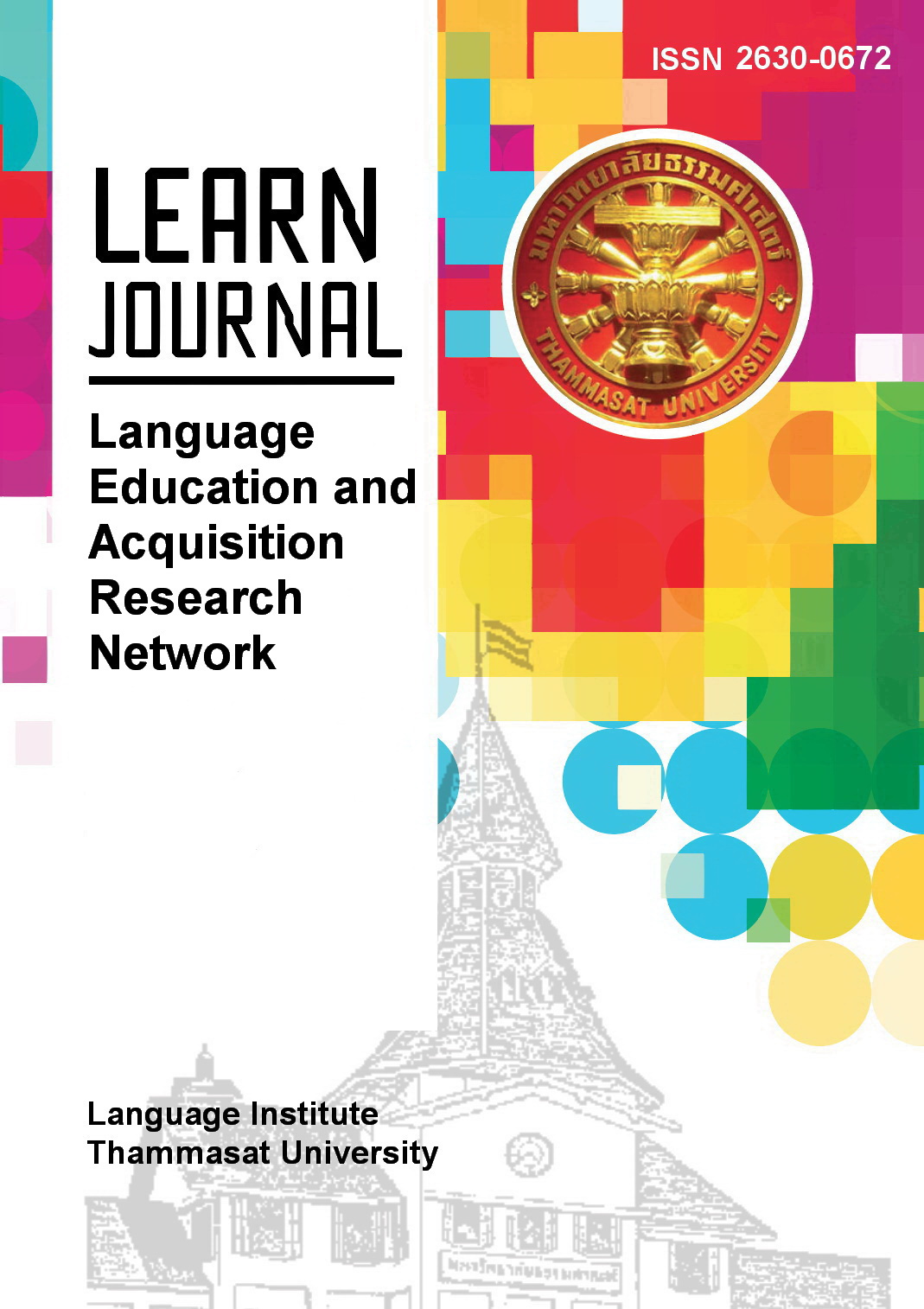Thai Undergraduate and Graduate Students’ Perceptions Towards Effective English Teacher Attributes
Main Article Content
Abstract
This study investigated effective English teacher attributes perceived by 125 Thai undergraduates and graduates in terms of five categories, namely rapport, delivery, fairness, knowledge and credibility, and organization and preparation. Descriptive and inferential statistics were used to rate and compare the responses of the undergraduate and graduate groups obtained through a 42-item questionnaire with a 7-point Likert scale. The results indicated both similarities and differences to some extent. While both groups placed rapport the highest rank, followed by organization and preparation, delivery was rated the lowest. The two groups, however, ranked fairness and knowledge and credibility in the opposite order. Graduates considered knowledge and credibility to be more important than fairness, and vice versa. Nine attributes were found to be significantly different between the two groups. While undergraduates weighed using Thai selectively, treating all students fairly, and preparing students well for exams more importantly, graduates favored teaching grammar, asking individual students to answer questions, requiring students to work hard during class, teachers’ having a good knowledge of grammar and vocabulary, and explaining the instructional methods to the class more. These findings are useful for university English teachers to understand their students’ expectations in order to help their students at different levels reach their true potential in English learning.


